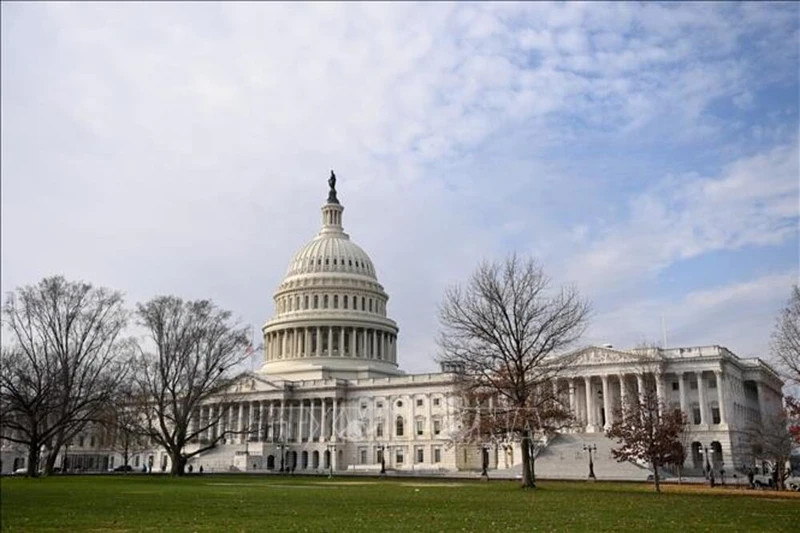The agreement on a “continuing resolution” (CR) to provide short-term funding to the US Government came in the context that the current budget will run out on January 19 for some federal agencies, including the Department of Transportation, while other agencies such as the Department of Defense can only maintain operations until February 2. These two deadlines will be extended to March 1 and March 8, respectively.
According to the schedule, the government spending law expired on November 17, 2023. However, to prevent the risk of a government shutdown, the US Congress passed a temporary spending bill, and President Joe Biden signed it on November 16, 2023. The bill funds military construction, veterans’ benefits, transportation, housing, urban development, agriculture, the Food and Drug Administration (FDA), and energy and water programmes until January 19, 2024.
On January 7, US lawmakers said they had reached a bipartisan agreement on a federal budget of about 1.600 trillion USD for the 2024 fiscal year, marking a step towards avoiding the need to close the federal government in the presidential election year.
Under the agreement, based on a proposal from then-House Speaker Kevin McCarthy and the White House last year, Pentagon spending increased to about 886.3 billion USD, higher than non-essential defence spending of about 100 billion USD outlined by the Democrats.
This agreement paved the way for Congress to act to maintain critical funding for the people and prevent a government shutdown. However, there is not much time left for parties in Congress to agree on details of spending and pass related bills as the deadline of January 19 is approaching, and several agencies under the federal government are running out of financial resources.
The US's budget difficulties arise in the context of rising budget deficits and massive public debt, which are worrying issues for the US economy. Large budget deficits could lead to higher interest rates, reduced investment and increased pressure on social programmes. Large public debt could also make the US economy more vulnerable to economic shocks.
According to a report released by the US Department of Finance, the budget deficit in the first quarter of fiscal 2024 (from October to December 2023) increased by 21% over the same period last year to 510 billion USD.
The main reason why the US budget deficit increased was due to larger spending, including interest payments on public debt. Interest on public debt in this first quarter increased by 78 billion USD over the same period last year to 310 billion USD. This is also the highest interest rate on public debt in a quarter since 2011. Total US public debt has now exceeded 34 trillion USD.
In addition, spending on military and social security also increased in the first quarter of fiscal 2024. Military spending increased 10% over the same period last year to 269 billion USD. Spending on social security increased by 5% to 717 billion USD.
According to the report, budget revenue increased from tax revenues from individuals and businesses but could not offset the country's expenses. On the contrary, spending in some other sectors, such as agriculture,decreased due to the end of the emergency spending programme for agriculture. Agricultural spending in the first quarter of fiscal 2024 decreased by 40% to 10 billion USD. If the current rate of budget deficit continues, the US will end 2024 with a deficit of more than 2 trillion USD.
High public debt has hindered efforts to reach a consensus on budget issues in the US Congress, exacerbating conflicts over federal spending. Although temporary bills have been passed to prevent the risk of a government shutdown, the public debt ceiling and budget issues may become "hot" again on the negotiating table when the US Congress must pass several budget measures for 2024.
















